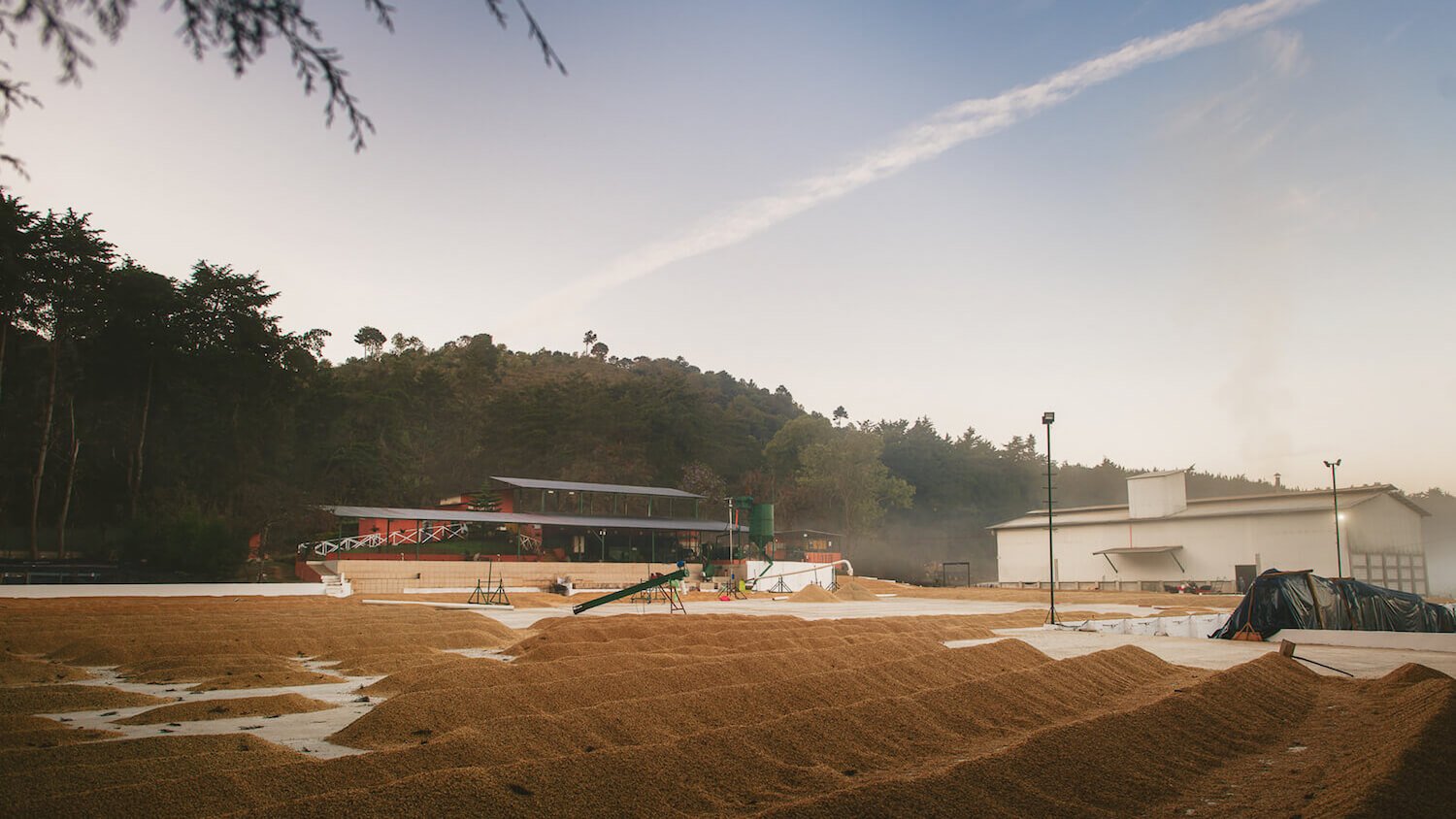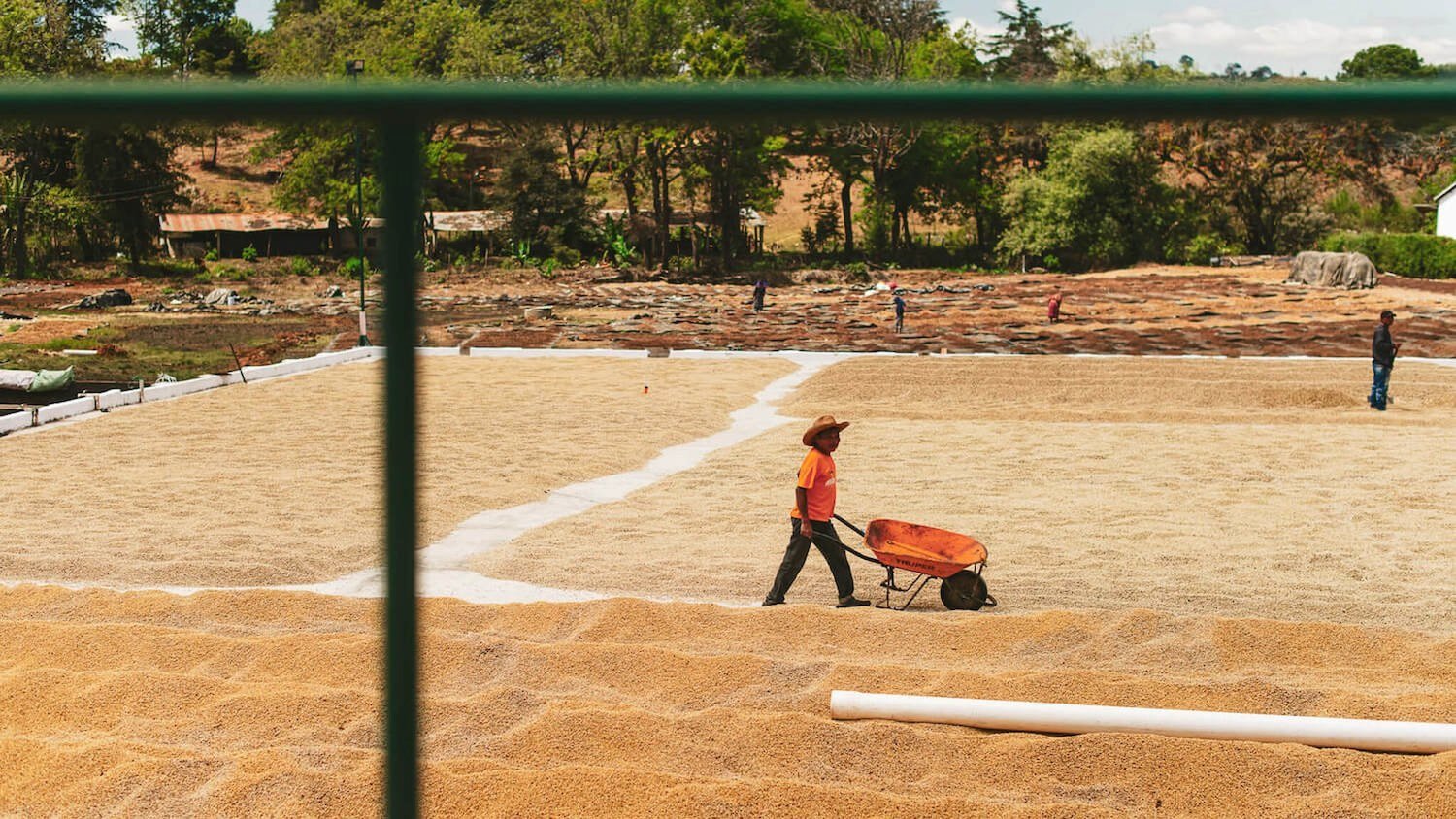Field Notes: Catalan de las Mercedes, Guatemala
March 2022
The growth of operations at Catalan De Las Mercedes astounded us this year! Two years of travel restrictions only serve to amplify the feeling of amazement when returning to this farm. Producer Nico Hammond has transformed this third generation farm into an enormous operation, with new additions including a fully staffed school center for harvest workers complete with dormitories and a large scale mechanical drying facility. Among the many efforts toward sustainability, the excess water from the mill is used to irrigate grasslands where livestock graze. They also recycle the cherry pulp into organic compost.
Here’s the statistical overview of the growth:
2018: 32 of 300 hectares planted
2022: 150 of 300 hectares planted
Now there are 90,000 plants in the nursery.
This mill services the majority of local growers in the region around the town of San Martin Jilotepeque, paying cash for cherry deliveries which enables farmers to bypass the logistics of dry-milling and going to the export market.
Mill capacity: 2500 quintales /250,000 lbs daily max (1 quintale= 100lbs)
120 workers every month during harvest
25 permanent workers: managers, electricians, welders, teachers, nannies for the school, mill managers, farm managers, cooks, plus interns studying agriculture
A Labor of Love
Among the many things evident at Catalan, is Nico’s sensitivity to the living conditions of his seasonal workers. The vast majority of seasonal “pickers” in Guatemala are culturally indigenous and speak little to no Spanish. According to Nico, 10-15 years are difficult ages in school. Workers’ children of that age are often considered adults and are resistant to further education. Nico is building an educational greenhouse to teach agricultural trades and grow vegetables for the workers to eat. As an added bonus for working at Catalan, the cantina is supplying more nutritious meals than the standard diet of beans and corn only.
Compensation for workers is by the day or week, with calculations used to determine total amount picked, since ripeness yields are greater at peak season. Catalan also provides two dental and medical check-ups per year with the help of a mobile service which visits the farm.








